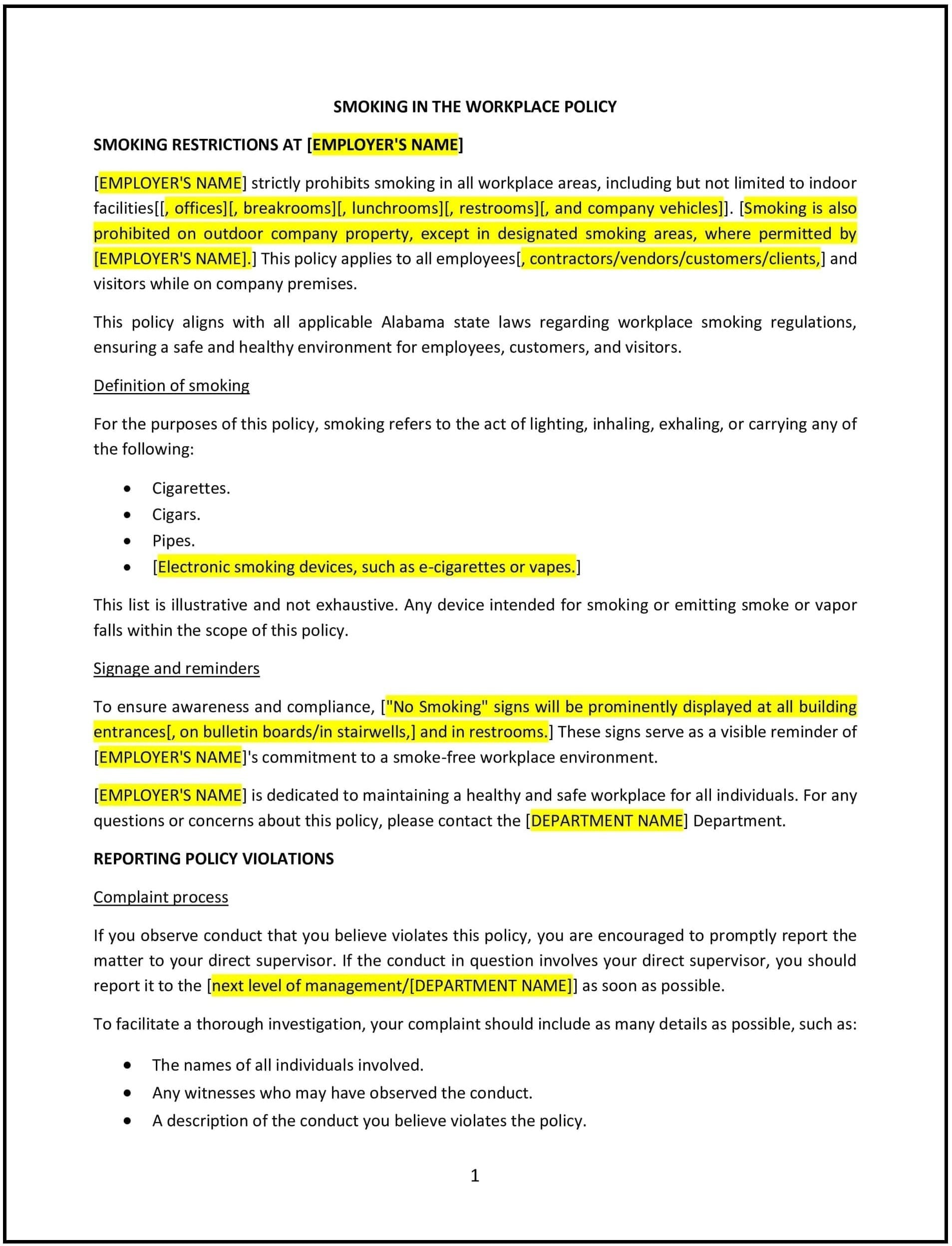Got contracts to review? While you're here for policies, let Cobrief make contract review effortless—start your free review now.

Customize this template for free
Smoking in the workplace policy (Alabama)
A smoking in the workplace policy outlines guidelines for managing smoking practices within and around company premises. For SMBs in Alabama, this policy helps ensure compliance with state-specific regulations, promotes a healthy environment, and respects the rights of both smokers and non-smokers.
This policy establishes clear rules regarding designated smoking areas, prohibited locations, and employee responsibilities to maintain a professional and comfortable workplace.
How to use this smoking in the workplace policy (Alabama)
- Define smoking: Specify what constitutes smoking, including traditional cigarettes, cigars, pipes, and electronic vaping devices.
- Outline designated areas: Identify areas where smoking is permitted, such as outdoor locations away from entrances, windows, or air vents.
- Prohibit indoor smoking: Clearly state that smoking is not allowed inside the workplace, in compliance with Alabama laws and local ordinances.
- Address breaks: Clarify how smoking breaks are managed, ensuring they do not disrupt workflow or exceed allotted break times.
- Include enforcement measures: Detail the consequences for violating the policy, such as verbal warnings, written notices, or disciplinary actions.
Benefits of using a smoking in the workplace policy (Alabama)
A smoking in the workplace policy ensures a balanced approach to supporting employee preferences while maintaining a safe and respectful environment. Here’s how it helps:
- Promotes health: Protects employees from exposure to secondhand smoke, supporting overall wellness.
- Ensures compliance: Aligns workplace practices with Alabama’s smoking laws and local regulations.
- Reduces conflicts: Provides clear guidelines to avoid misunderstandings between smokers and non-smokers.
- Enhances professionalism: Maintains a clean and professional environment by addressing smoking-related concerns.
- Streamlines enforcement: Establishes consistent rules and procedures for addressing policy violations.
Tips for implementing a smoking in the workplace policy (Alabama)
- Communicate expectations: Share the policy with all employees during onboarding and through regular workplace reminders.
- Provide signage: Clearly mark designated smoking areas and prohibited zones to ensure compliance.
- Offer support programs: Encourage employees to participate in smoking cessation programs, if available.
- Monitor compliance: Assign management or HR personnel to oversee adherence to the policy and address any concerns promptly.
- Update regularly: Review and revise the policy as needed to reflect changes in local regulations or workplace dynamics.